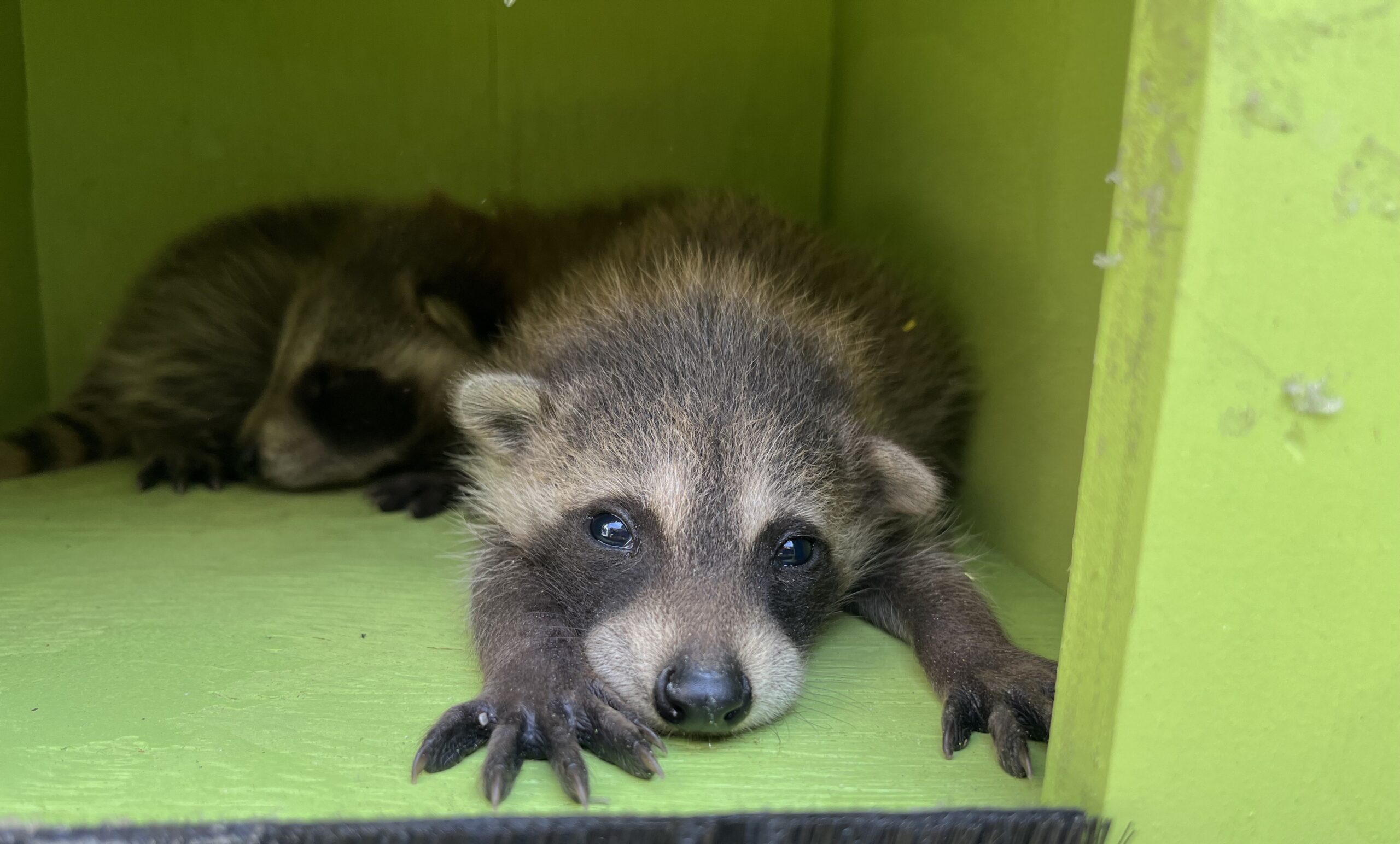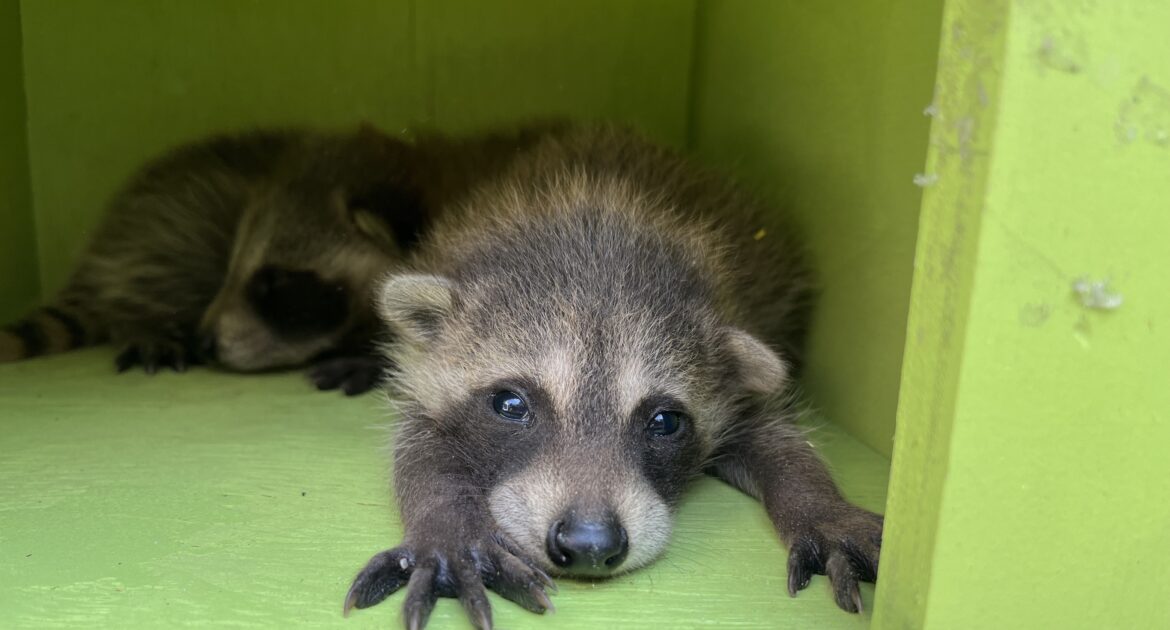Raccoons are typically nocturnal, so seeing one during the day can be surprising or even worrying. However, not all daytime raccoon sightings are a cause for concern. Raccoons may be active during the day for several reasons—they could be hungry, caring for their young, or adapting to environmental changes. That said, daytime activity can sometimes indicate health issues, so it’s good to stay cautious.
In this article, we’ll cover why raccoons might be out during the day, whether they’re dangerous, and how to keep them off your property. If you’re curious or concerned about raccoons wandering around in daylight, keep reading for answers.
Searching for Food
Raccoons are clever scavengers and might venture out during the day in search of food if their usual nighttime meals are harder to find. Urban and suburban areas, like Baltimore, offer plenty of tempting options, from unsecured garbage bins to bird feeders.
If you’ve noticed raccoons in your yard, it’s important to identify the signs they’re foraging and take steps to prevent them from returning. Here are some signs they are in your yard:
- Unsecured garbage bins are tipped over or rummaged through
- Pet food or birdseed scattered or missing
- Compost piles disturbed
- Dark, tubular droppings with visible seeds or fruit peels
By securing garbage lids, bringing pet food indoors, and cleaning up fallen birdseed, you can reduce the chances of attracting raccoons to your property. These small changes can help protect your yard and ensure raccoons look elsewhere for food.
Caring for Their Young
If a raccoon is a mother, her priorities change drastically, especially when it comes to feeding her babies. Nursing mothers need extra energy, which means they have to gather more food than usual. That’s why you sometimes see them during the day, no matter how risky it might be. Their focus is on survival for themselves and their young.
You might notice a raccoon making regular trips back and forth to the same spot, like a den under a deck or in a tree. This is often a sign it’s a mother with babies. She might gather food from nearby garbage bins or even dig up grubs in your lawn. It’s her way of trying to provide for her family.
While it’s fascinating to know, avoid getting too close if you suspect the raccoon you’re seeing is a nursing mother. She won’t cause harm unless she feels cornered, but it’s always best to give wildlife plenty of space.
Health Issues
Sometimes, daytime raccoon activity can indicate something more serious. While most raccoons are out during the day are just trying to survive, others could be sick. Certain health problems, like distemper or rabies, can cause unusual behaviors. These animals might stumble around, show signs of aggression, or seem confused and disoriented.
If you see a raccoon behaving strangely or showing symptoms of illness, stay far away. Avoid any physical contact with the animal, as diseases like rabies can spread quickly through bites or scratches.
At Skedaddle Humane Wildlife Control in Baltimore, we always educate homeowners about the signs of a sick raccoon to ensure everyone stays safe. If you think the animal is unwell, consider reaching out to professionals for advice on how to handle the situation.
Environmental Changes
Raccoons, like many animals, are highly adaptable. But when something significant happens to their environment, their routines often change. Habitat loss—for example, from construction projects or large-scale landscaping—can push raccoons to rethink when and where they’re active.
Urbanization in areas like Baltimore means these creatures must share space with humans more than they used to. If their homes are affected, raccoons might venture out during the day, exploring new areas or making adjustments to their habits. They might take advantage of human activity, like searching for leftover food near a picnic area at a park.
While raccoons adapt to survive, we can adapt too by keeping our properties less inviting for them. Sealing up potential shelter spots like underneath porches or decks can help a lot.
Are Daytime Raccoons Dangerous?
A raccoon out in daylight doesn’t always mean trouble, but it’s a common concern for homeowners. Are these animals dangerous during the day? The short answer is no—usually, they’re not a threat. Most raccoons are far more interested in avoiding humans than confronting them.
That being said, you should always be cautious. Raccoons can become defensive or unpredictable if they feel threatened or if they’re sick. For this reason, keep your distance and avoid trying to scare or trap the animal.
We understand that safety is a worry when it comes to wildlife near your home. That’s why it’s essential to have experts like us handle situations rather than taking risks yourself.
Preventing Raccoon Activity on Your Property
If you want to avoid seeing raccoons on your property—day or night—there are several things you can do. Prevention is key to keeping your home and garden less attractive to these curious creatures. Here are some practical tips to consider:
- Secure Your Garbage Bins: Make sure all trash cans have tight-fitting lids. If a raccoon can’t get inside, it’ll likely move on to find another food source.
- Remove Pet Food and Water Dishes: Don’t leave pet food or water outdoors overnight or during the day. These can be easy meals for a hungry raccoon.
- Clean Up Bird Feeders: Fallen birdseed can attract more than just birds. Regularly sweep up the area under your feeders to prevent it from becoming a buffet.
- Seal Entry Points: Check your home for openings raccoons could use to get inside your attic or under your deck. Seal these areas with sturdy materials, like steel mesh.
- Use Humane Deterrents: Devices like motion-activated lights or sprinklers can help scare raccoons away without causing harm.
By taking these steps, you’ll create an environment that’s less appealing for raccoons and other wildlife. It’s not just about convenience—it’s also about safely coexisting with our animal neighbors.
The Humane Approach to Raccoon Control
Raccoons are a natural part of life, and seeing one, whether it’s during the day or not, might not always be cause for concern. Often, they’re just looking for food, caring for their babies, or adapting to changes in their surroundings. But when a raccoon’s behavior starts to put your home or family at risk, it’s important to seek professional help.
At Skedaddle Humane Wildlife Control, our team knows how to deal with raccoon-related challenges in the safest and most humane way possible. Using no-trap techniques like one-way doors, we ensure wildlife exits your property but can’t get back in. This method is effective and protects both homeowners and the animals.
If you’re dealing with an issue or just worried about seeing raccoons during the day, don’t hesitate to contact us. Our local wildlife removal in Baltimore is here to provide humane, reliable solutions to keep your home safe and wildlife-free.




